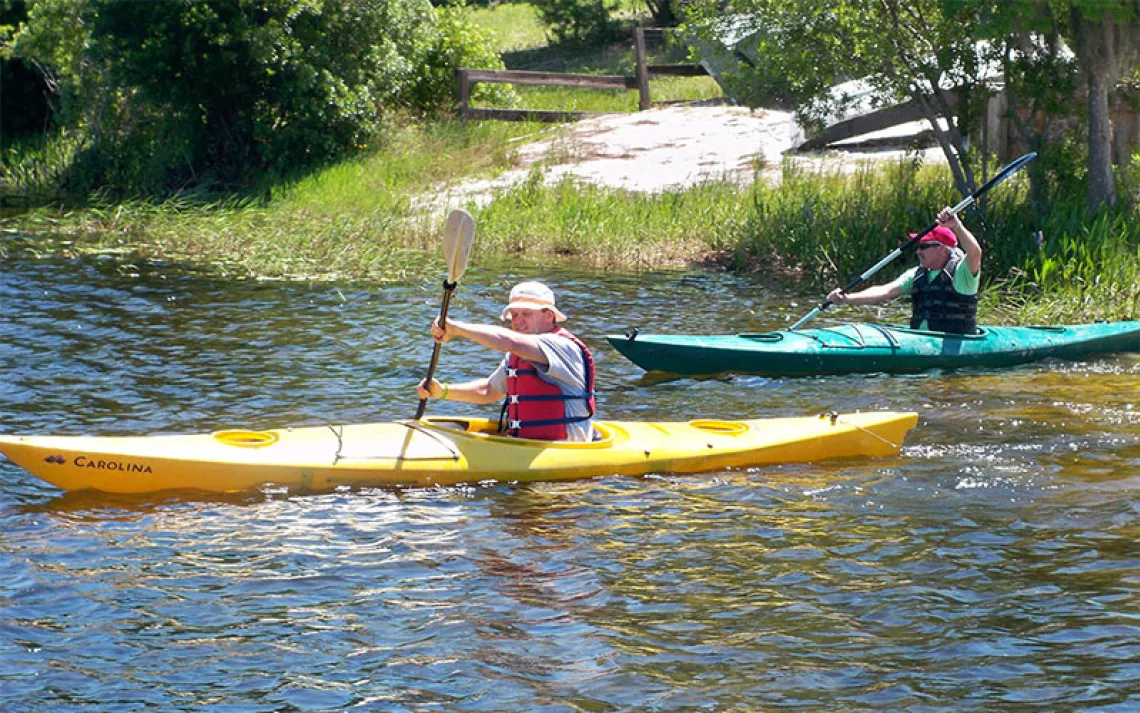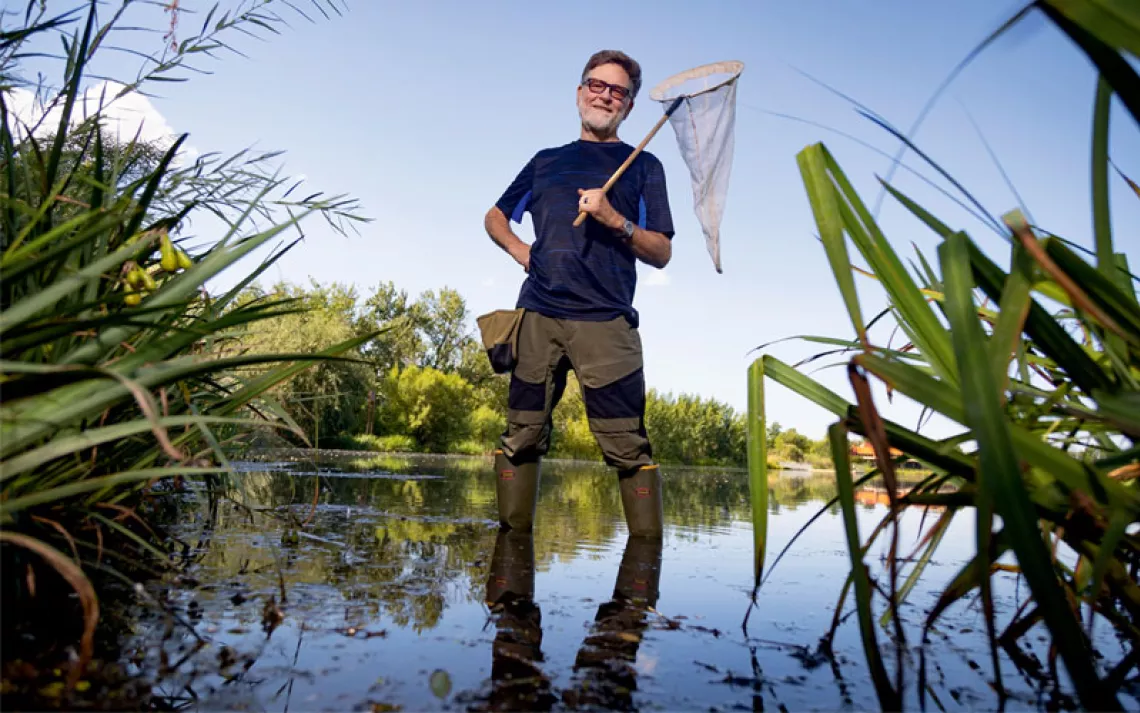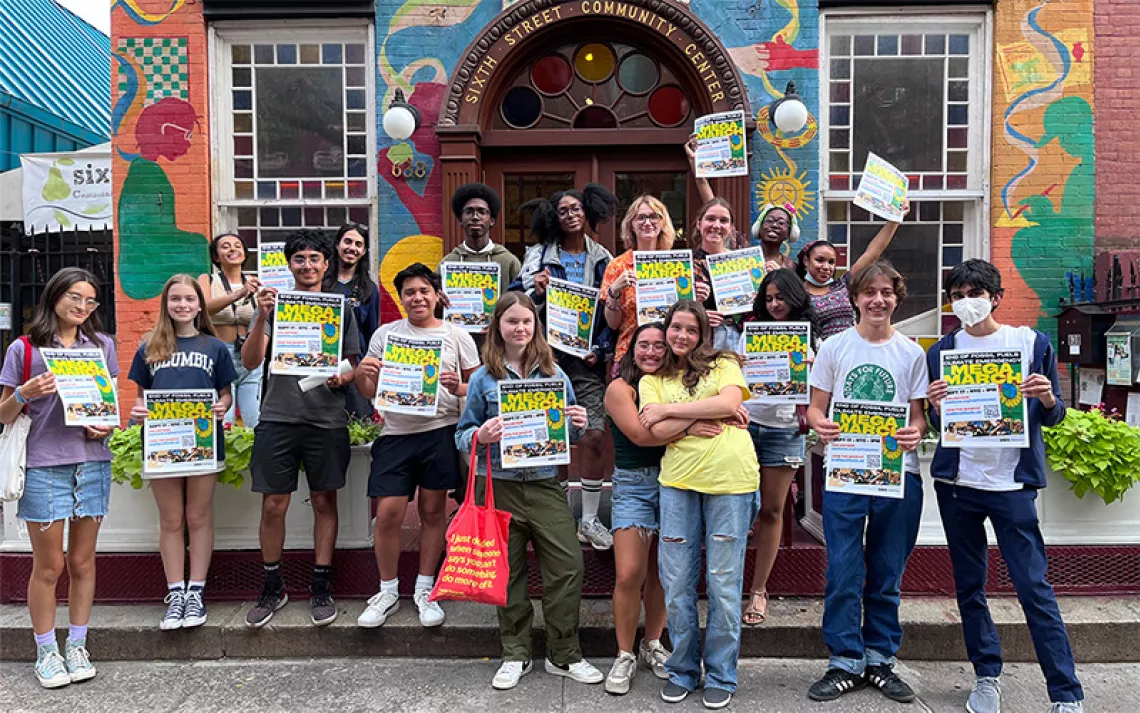ENVIRONMENT EXPLAINED
Kids With Disabilities Have a Right to Outdoor Field Trips
But all too often, they miss out
The benefits kids reap from nature are well documented, which is part of the reason school field trips often involve excursions into the Great Outdoors. Children with disabilities, however, sometimes get left behind.
Ryan Neighbors is a Kentucky 10-year-old with spina bifida who uses a wheelchair. She didn’t want to miss out on her class field trip to a state park, but the terrain was going to make it difficult for her to participate. So a teacher volunteered to carry her, and that story went viral—all the way to the Today show, on which Ryan, her mother, and the teacher shared their story, emphasizing the importance of inclusion and celebrating the teacher’s generosity.
But kids with disabilities should be able to join their peers on field trips, such extraordinary acts of kindness notwithstanding.
The Americans With Disabilities Act (ADA) and Section 504 of the Rehabilitation Act require schools to provide accommodations to students with physical or mental disabilities, so they have equal access to programs and services. In the classroom, these laws, along with the Individuals With Disabilities Education Act (IDEA), might mean that a one-on-one paraprofessional or a sign language interpreter be assigned to a child, for example.
The ADA and Section 504 also extend to field trips and extracurricular activities. But sometimes, kids with disabilities are told that they can’t go on the field trip, or that a parent will need to come along.
The problem often boils down to a lack of adequate planning. This is according to Bruce Goldstein, a Buffalo, New York–based lawyer who has worked with numerous families whose children faced field trip problems. These students’ needs have varied—from a child who has diabetes and simply required access to the right kind of food in the event of low blood sugar, to a student with asthma who needed someone to administer treatment, to a deaf student who uses sign language.
If the school says it can’t provide the necessary accommodations, sometimes a parent steps in. “Some parents feel boxed into the corner, and they end up going, just to allow their child to participate,” Goldstein says. However, “for the school or school district, it is not a reasonable accommodation to require the parent to go along. It’s something that the district has to take on as its responsibility.”
Goldstein also points out that having the parent there on the field trip changes the dynamic for the kid.
Ryan Neighbors had missed field trips before. Normally, she gets an educational day off, and “we’ll kind of create our own field trip,” says her mother, Shelly King. “Well, when she comes back, she is not really included in the lesson plan, because what they learn on the field trip, they work into their lesson plan at school.”
When King found out that this field trip would involve an outing to the fossil beds at Falls of the Ohio State Park, she figured Ryan would have to miss this one as well. But ultimately, despite knowing that it would be physically challenging to carry her daughter up and down the boulders and steps the group would traverse, King decided she would use a backpack carrier to bring Ryan. That’s when a teacher at Ryan's school, Jim Freeman, heard about the situation and volunteered to carry her.
Some areas of the park were accessible—a ramp went part of the way down to the fossil beds, King explains. So Ryan could have gone down to the end of the ramp in her wheelchair, but she would have had to stop there and watch her friends explore from afar.
“She loved being down there in the fossil beds,” King says. “She was like, ‘I got to pick up the rocks and feel them and hold them, and I got to be really close to the fossils, and if I was up on that ramp, I wouldn’t have really been able to see the fossils.’”
The difference between stopping at the end of the ramp and going all the way into the fossil beds is something the school may not have fully considered. It’s not that schools are trying to shirk their obligations—it may be that occasional field trips simply don’t get thought through far enough ahead of time. “The day-to-day is in the forefront,” Goldstein says, “and this sometimes kind of slips off the radar.” He adds, “If parents are aware of what their children’s rights and their rights are, and the school district’s obligation toward those children, these are issues that ought to be addressed and discussed at the planning meetings that are required to be held under law [as part of the child’s Individualized Education Program (IEP) or 504 planning meeting].”
This issue comes up frequently in the San Francisco Unified School District, says Alida Fisher, past chair of the district’s Community Advisory Committee for Special Education. “There are so many schools that do overnight experiential field trips, and our kids with differences who need extra help either get left behind, or parents come along.”
Fisher’s son has behavioral issues that require a one-to-one para in school. But when his fifth-grade class was planning an overnight field trip for two nights at NatureBridge, a rustic recreational center in the Marin Headlands north of San Francisco, his para couldn’t go with him. Without any other alternative that would allow her son to go, Fisher and her husband “basically rearranged our lives for three days,” driving hours back and forth to trade off duties accompanying their son, and meanwhile finagling work and responsibilities for their other children.

Alida Fisher and her son at NatureBridge in the Marin Headlands | Courtesy Alida Fisher
Two other kids on that field trip had parents come along to help manage their disabilities, Fisher notes. “That was the only way these kids could access the field trip—with parental support,” she says. “When you’ve got a kid with unique needs, you go above and beyond when you can, but unfortunately, not everyone can.”
A parent’s inability to take time off work or other responsibilities to accompany their child shouldn’t mean the child has to stay behind.
“Field trips are still part of education,” says Nina Boyle, who works with Support for Families of Children With Disabilities, which provides families with education, support, and understanding around children’s rights. “They’re opportunities for all students to learn about and advocate for their world. They’re also social opportunities—social skills are part of what students are learning.”
Boyle’s son has cerebral palsy and uses a wheelchair. In school, he’s always had a one-to-one para or aide who would accompany him on field trips. “We’ve been really lucky in that his teams overall have been thoughtful and planned ahead of time [to make sure his needs would be met],” she says.
Boyle recalls a field trip to the beach when her son was little. Wheelchairs are difficult in sand, but this beach had a path that ran close to the shore, and his aide took supplies such as blankets and pillows so that they could transfer him out of his chair and onto the sand. “They did some thinking ahead of time about what they would need in order to allow him to sit on the beach with everybody else.”
In providing adequate accommodations, cost is a concern—and overnight camping trips requiring paras clearly incur them. But Goldstein notes that the law requires the school to provide reasonable accommodations—and that one element of reasonability is cost. “But whatever the [school district’s] cost is going to be for this particular student, it’s going to pale in comparison to the annual budget, so it would be hard to argue it’s too costly.”
Fisher notes that her district’s Community Advisory Committee is working on a proposal that would set aside some funding specifically for situations like paying a para to accompany a child on a field trip.
Schools sometimes offer an alternate activity for a child who gets excluded. But it’s important for kids with disabilities to be included, Goldstein says. “They’re already aware of being different, and as much as we can do for inclusion and normalization—in terms of developing whole individuals and allowing them to grow into adults and feel like an integral part of society—we have a responsibility to support and encourage,” he says. “The message that’s sent by exclusion is one of those things that can have just horrible, lasting effects.”
Fisher agrees, noting that most of the kids with IEPs are usually in general education. “They sit in the classroom with their neurotypical peers for the majority of the day. To watch all your friends be able to go on this really cool experiential field trip and then come home a couple days later and be talking about it—can you imagine just how ostracizing that would be to not be able to go?”
She adds, “Morally and ethically, inclusion is critically important. I would say it’s even more important for our kids with various disabilities to be included, because we’ve got kids who learn and think in so many different ways.”
Fisher’s son is a hands-on learner. “The way he learns is through the kind of experience the whole class got at NatureBridge,” she says. He’s now in eighth grade, and he still talks about what he learned on that fifth-grade trip. “He can still give you a whole dissertation on banana slugs, because he got to hold one—because he got to feel its slime.”
Getting out in nature is especially critical for city kids who “barely step outside of the city,” Fisher says. And they don’t have to go far to feel like “it’s a completely different world. It’s that first step for so many of our students in understanding that the world is bigger than what they see and do on a daily basis, which is the first step in building empathy, which is the first step in making us a strong and healthy community.”

Courtesy Alida Fisher
 The Magazine of The Sierra Club
The Magazine of The Sierra Club




